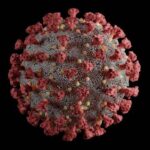We want to welcome you to the third episode from our complicated UTI roundtable series, which is a collaborative effort that includes Contemporary Pediatrics, Contagion, and Contemporary OB/GYN. This series looks to discuss several topics around these infections including diagnosis, treatment, challenges in managing UTIs in patients with dementia and neurogenic bladders, antibiotic resistance, and considerations for patients and caregiver engagement.
Our panel of clinicians includes:
- Barbara Trautner, MD, PhD, professor, Infectious Diseases, Section of Health Services Research, Baylor College of Medicine
- Kimberly Claeys, PharmD, PhD, associate professor of Practice, Sciences, and Health Outcomes Research, University of Maryland Baltimore
- Laila Woc-Colburn, MD, associate professor, Division of Infectious Diseases, Emory University School of Medicine
This is a 3-part series, and in today’s episode, the clinicians discuss new therapeutic agents, either in late stage development or recently approved, as well as consideration for patients and caregiver engagement in terms of diagnosis or treatment.
“As we talk about complicated UTIs vs uncomplicated [UTIs] and vs asymptomatic bacteriuria, the question becomes, are the FDA guidance documents with a composite endpoint appropriate for the actual approval of these drugs, or should we be looking at more clinically based?”
— Kimberly Claeys, PharmD, PhD
This roundtable is part of ongoing educational and informational multimedia series we are producing and for any feedback or suggestions, please feel free to email John Parkinson at jparkinson@mjhlifesciences.com.








